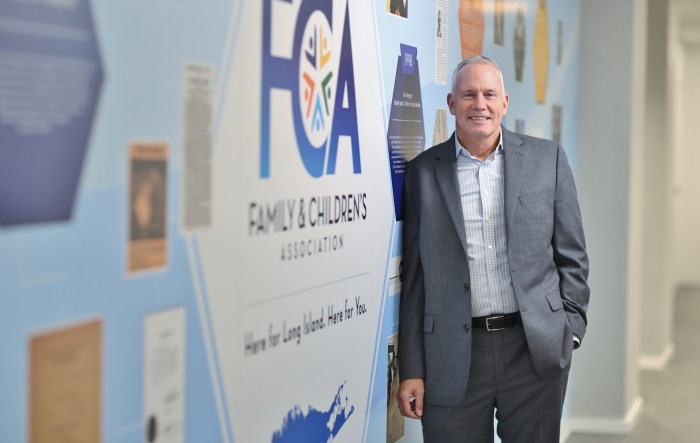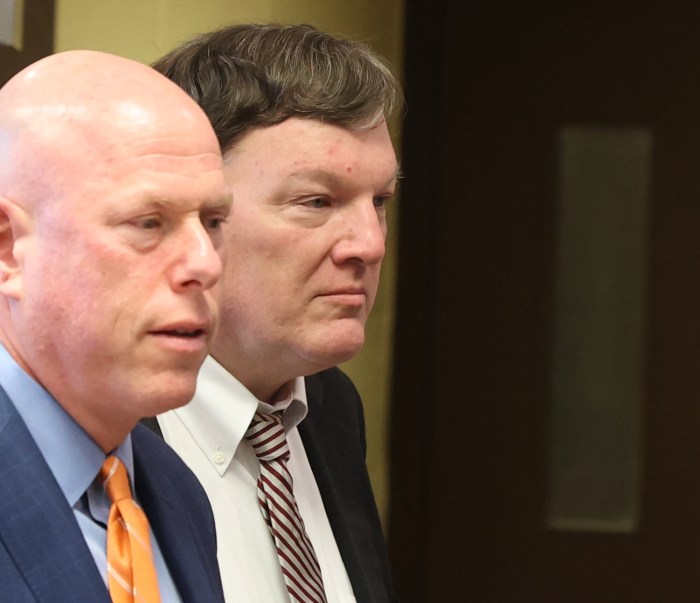
Revolution
As the president of a successful business in Westbury and a prominent public figure, Long Island’s first openly gay elected official, Jon Cooper, the Suffolk County Legislature’s Democratic Majority Leader, is used to making the rounds of the Island’s social circles, often with his long-time partner Rob, whom he married in Connecticut when the Nutmeg State legalized same-sex marriage. Together they’ve adopted five children—the oldest now over 25, the youngest (twin daughters) still in their teens—and raised them in Huntington. Depending on his audience, Legis. Cooper (D-Lloyd Harbor) can happily discuss parenting or politics.
Along the way, he’s come to know which wives of the Island’s nine Republican state senators favor gay rights as well as whose staff members are gay. All nine—the Island’s entire GOP state Senate delegation−voted against Cuomo’s proposal last Friday night. For Cooper, the apparent hypocrisy has lost its sting now that marriage equality for same-sex couples has become law in New York.
“As far as I’m concerned it doesn’t matter anymore!” Cooper tells the Press. “Those nine senators are going to have to justify to their grandchildren someday their vote against equality. But that’s for them to live with.”
For Suffolk Conservative Party Chairman Ed Walsh, the focus is on the four upstate Republican senators who approved the measure.
“They pandered to the special interests and tried to be everybody’s friend instead of sticking to their base and what their core values are supposed to be,” he says. “I’m not flexible at all. Marriage is between a man and a woman. That’s it.”
Walsh vows that if any one of Long Island’s nine Republicans had supported Cuomo’s bill, he would never have given them the Conservative Party line again—and that ballot position, as candidates from both ends of the political spectrum know all too well, is formidable because the Conservative base is so strongly motivated to come out to the polls.
Walsh did not appreciate the role played by the most powerful Republican in New York, Senate Majority Leader Dean Skelos (R-Rockville Centre), who allowed the gay rights measure to come up for a vote.
It was Skelos who first announced definitive news of the historic vote early Friday evening via a post on his Web page. Literally up until that very moment questions persisted if the issue would even make it that far.
“After many hours of deliberation and discussion over the past several weeks among the members, it has been decided that same sex marriage legislation will be brought to the full Senate for an up or down vote,” he wrote.
“The entire Senate Republican Conference was insistent that amendments be made to the Governor’s original bill in order to protect the rights of religious institutions and not-for-profits with religious affiliations. I appreciate the Governor’s cooperation in working with us to address these important issues and concerns.”
Skelos deemed the issue as “very difficult” and characterized the decision as “a vote of conscience for every member of the Senate.”
“If I’m the majority leader, it would never have gotten to the floor,” protests Walsh. “I think it was a terrible move.”
When the Democrats controlled the state Senate in 2009, the same-sex marriage bill lost 38-24. This year’s senate, composed of 32 Republicans and 30 Democrats, passed the bill 33-29. All but one Democrat, Rev. Ruben Diaz of the Bronx, supported it.
“It’s amazing how guys change their opinions overnight,” says Walsh. “But at the end of the day they’ll have to answer to a higher power than us.”
The Republican Senate Conference “talked about this for hours,” Skelos’ spokesman, Scott Reif, tells the Press. “Senator Skelos has said they held thoughtful, insightful, at times emotional, discussions about this issue.”
The behind-the-scenes jockeying seemed to last for days, prompting the legislature to delay the vote several times. At one point, Sen. Kemp Hannon (R-Garden City) was credited with leading a push for “religious protections” in the bill so that religious groups and nonprofit organizations “wouldn’t be required to do something that they were opposed to,” Reif explains. The amendment language may have been enough to give the Republicans on the fence cover to support the bill.



































